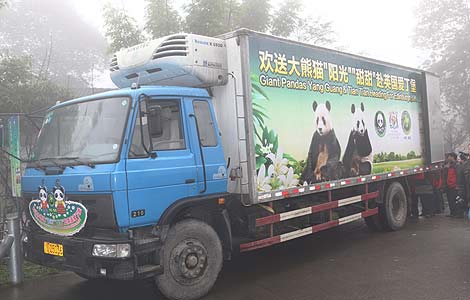UK troops in Afghanistan to drop to hundreds
Updated: 2011-12-08 12:21
(Xinhua)
|
|||||||||
LONDON - There would only be a few hundred British soldiers left "in a training capacity" by the end of 2014, the country's deadline for withdrawing troops from Afghanistan, Defense Secretary Philip Hammond confirmed on Wednesday.
"My assessment is we are talking in hundreds and not in thousands. They will not be there in a combat role, they will be there training and mentoring and at a ministerial level in Kabul," said Hammond, who was installed only seven weeks ago after a political scandal brought down his predecessor.
But he expected Britain to make a significant financial contribution to fund Afghan security forces.
The military spending has been cut as part of a broad budget reduction enforced by Chancellor of the Exchequer George Osborne, as the country runs a near-record public spending deficit estimated at 127 billion pounds (about $200 billion) this year.
Hammond said details of what would be cut in the military budget over the next two years had not yet been decided, but there would be painful choices to make.
Britain's allies, especially the United States, are uneasy about the cuts, worrying that the country was getting militarily weaker.
Hammond said it was of strategic importance that Britain was careful about which of its military capabilities it discarded as part of cost cutting and look at "which of our capabilities delivers the most value to our alliances - in particular the United States."
He outlined the future shape of British military forces, saying Britain would keep its capacity to deploy significant armed forces anywhere around the globe, and revealed for the first time that there could be up to 30,000 troops as a "surge capacity for a short period of time."
Hammond ruled out unilateral military action, saying he believed Britain would act with allies and partners in the future, except in the South Atlantic. There, Britain gained control of the Falkland Islands (referred to as the Malvinas Islands by Argentina) in the 1982 war, which remains a source of friction between the two nations.











